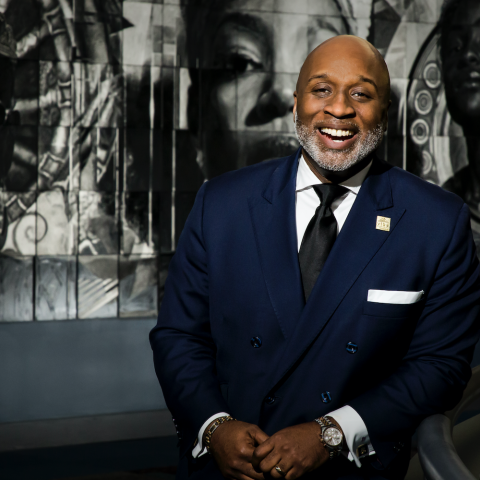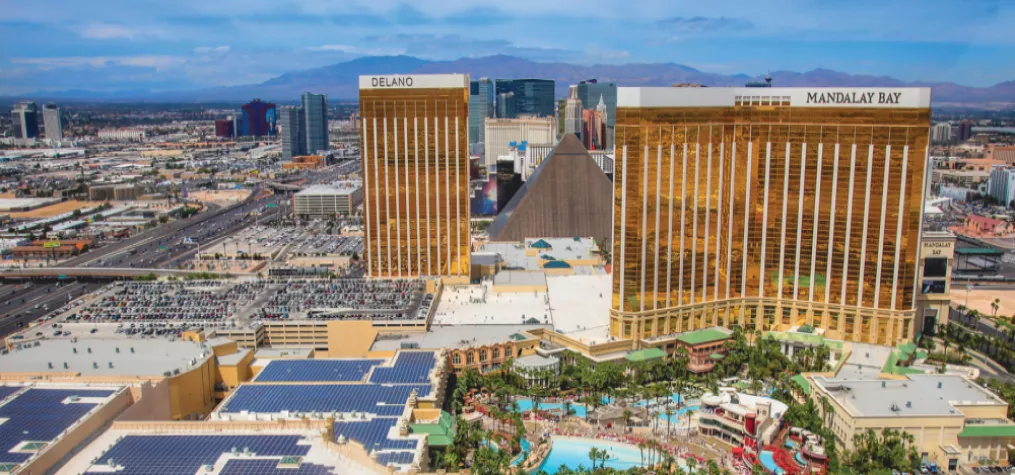What the Meetings Industry Gets Wrong About Diversity—and How to Fix It

The unjust killing of Black American George Floyd in Minneapolis on May 25 by a police officer has sparked nationwide protests over civil injustice. Amid a time when the events industry was already struggling with great change, due to forced event cancellations and reorganization of many companies during the COVID-19 pandemic, organizations are now also questioning their own approach to diversity. Few are more qualified to speak to this important topic than Jason Dunn, chairman of the National Coalition of Black Meeting Professionals and an industry diversity leader as group vice president of diversity sales and inclusion for the Cincinnati USA CVB. Here’s his take on what needs to change in the meetings industry when it comes to diversity — and suggestions on how to take action.
When people talk about diversity and inclusion in meetings and events, what are some of the fundamentals they're getting wrong?
Let me first say, I think we have to be OK saying “Black” or “African American” and not burying our intent within one word. The word “diversity” in a broad sense has lost its impact in how it is being expressed; it’s been diluted to a buzzword or a catch-all category, and supported with unsophisticated, monolithic strategies.
The meetings and events industry must understand that diversity, at its core, is much more than optics. It is the sum total of equity and inclusion. Equity is what we are in search of; however, equity means sharing equal power with a common purpose and fair process.
My hesitation with using equity versus diversity is that diversity is more optics and not structurally disruptive. Optically, having a diverse panel is great — and frankly, wise — but if diversity is reduced to pigmentation solely and simply parroting the same points, there is no real equity in the conversation. In my opinion, that is where we get it wrong.
Are there any phrases or words that the industry needs to stop using with regard to diversity?
We should stop exploiting the word “diversity” and seek the fullness of equity and inclusion. You cannot celebrate diversity when your budgets, staff, board, sponsorships and partnerships do not reflect what you’re communicating.
The industry has a difficult time comprehending the impact of the diversity market. The illusion that the diversity market is low revenue is very interesting to me and could possibly stem from the stereotypes of the acronym SMERF. An estimated $300 billion in spending power for the diversity market does not seem very “Smurfy” to me. [We need to] get rid of that acronym.
What are a few ways planners can make decisions from a place of understanding and a true desire for equality, rather than simply checking off boxes?
First, broaden your circle of influence and listen to those voices.
Be committed to implementing uncomfortable strategies that disrupt an unhealthy culture. For example, you may have employees who are unable to work within a diverse environment and accustomed to stereotypical roles rooted in historical biases. There has to be a commitment to rid the workplace of employees or practices that are not aligned within new policies. Additionally, leadership must be willing to implement recommendations that are suggested by equity and inclusion professionals. (You can find one of these professionals through the Center for Equity and Inclusion.)
Third, consider that employees reflect their leadership; you may want to look in the mirror to ensure you are not the problem.
Finally, don’t be afraid to speak up and ask questions.
What other ways can meetings professionals be part of the solution to this social justice movement taking place right now?
Work within and follow the mission of your organization. If your organization lacks diversity and equity, then partner with organizations who can offer support.
Speak up when you see or hear injustices.
Look at all the companies, friends and colleagues that are pledging support of equity or the appreciation of social justice. Then, research their companies, recall their actions and see if their words match up. If they do not, use your platform to ask why.
Push our industry to invest in a study (such as this one from NCBMP) via Oxford Economics and Nielsen to accurately capture the true impact of the diversity market. This completed data should be shared throughout the industry to reset the conversation on the true value of this market.
Support destinations and hotels that have authentic diversity and inclusion departments that are rooted in equity, and celebrate diversity in every level of the workforce, including the C-suite. Some examples to look at include Cincinnati, Philadelphia, Miami and Fort Lauderdale [which all had robust inclusion departments pre-COVID-19]. Maybe we will see more D&I departments in more cities and within hotel brands, and current departments sustained and fully supported [when budgets come back and the country is fully reopened].
Join the National Coalition of Black Meeting Professionals — membership is open to all.
What steps is your organization taking to practice more inclusion going forward? Check out Experience Columbus’ call for social change here and let us know if your company or any destinations you’re working with are taking similar action.


Add new comment